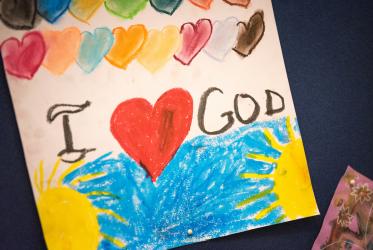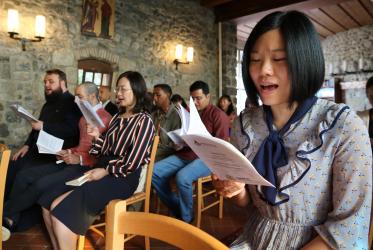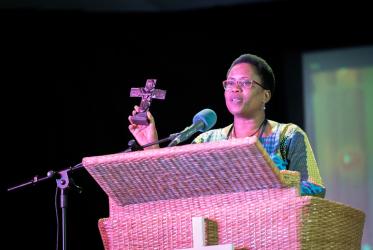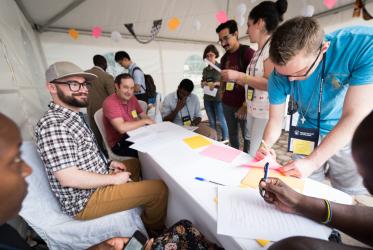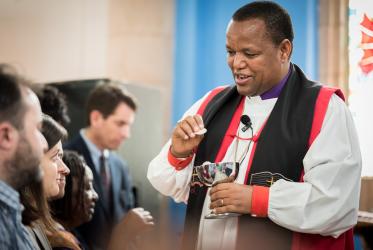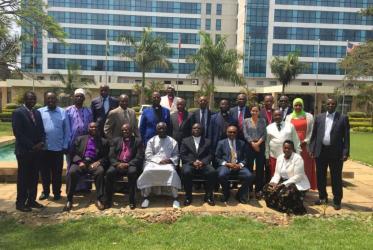Displaying 1 - 20 of 25
Young Africans are eager to grapple with challenges
09 January 2020
Regional forum in Nigeria centers on banning nuclear weapons
04 September 2019
“Empower our pilgrimage through love”
07 November 2018
Paving the way for ecumenical studies, learning English in Bossey
24 September 2018
New students welcomed at WCC Bossey Ecumenical Institute
13 September 2018
Diakonia: “a tool to reach abundance of life”
24 July 2018
“Sending service” closes Arusha conference
13 March 2018
‘Sokoni’ transforms marketplace into mission
13 March 2018
Arusha offers vibrant and colourful worship life
12 March 2018
Indigenous youth want their voices heard
08 March 2018
GETI students plant trees, in service for greener future
07 March 2018
Seven weeks of Lent highlight water justice in Latin America
12 February 2018
In Nigeria, WCC workshops focus on human rights
04 December 2017




